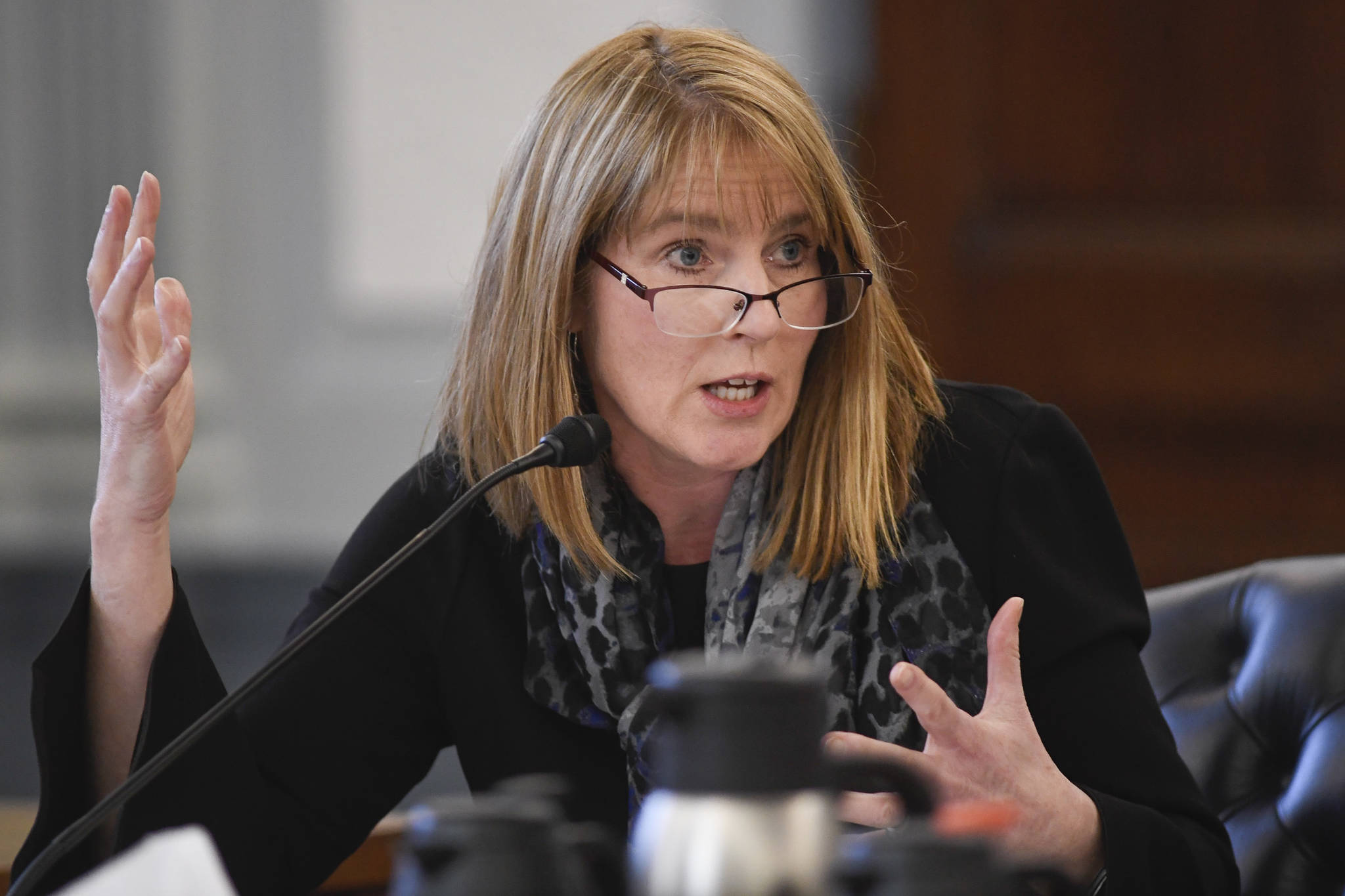The Senate’s budget-writing committee voted Friday to include a full dividend payout from Alaska’s oil-wealth fund this year, with the caveat that it could still be negotiated.
The Senate Finance Committee also approved moving $12 billion from the Alaska Permanent Fund’s earnings to its constitutionally protected principal. Committee co-chairwoman Natasha von Imhof said such a move would protect funds for future generations and force a conversation on redefining the dividend calculation.
Fund earnings have long been used to pay residents annual dividend checks. Lawmakers last year also began using earnings to help pay for government, creating tension.
Lawmakers passed a law last year intended to limit what could be taken from earnings for government and dividends, though critics say it can be ignored. The law calls for a withdrawal of $2.9 billion for the coming budget year.
The fund overall was valued at $64.5 billion at the end of March, according to the Alaska Permanent Fund Corp., with the earnings portion valued at $18.4 billion.
The cost for a full dividend — which has been estimated at roughly $2,900 to $3,100 to each recipient — is $1.9 billion.
Senate Finance Committee co-chairman Bert Stedman expects the ultimate size of this year’s check to be decided through negotiations. The House’s version of the budget did not include a dividend amount.
“It’s what the House and the Senate work out together and the governor will support,” the Sitka Republican said in an interview. “Clearly the governor’s standing firm on a full statutory dividend, and we’ve showed at Senate Finance that the paying of that full statutory dividend is extremely difficult this year and it’s going to be virtually impossible next year.”
Gov. Mike Dunleavy has said that lawmakers should follow the dividend formula in state law that has not been followed the last three years as the state grappled with a still-unresolved budget deficit.
Dunleavy also called for a level of budget cuts that lawmakers so far have rejected, along with tax collection shifts that would benefit the state at the expense of some local governments.
Besides the earnings reserve, there is a budget reserve fund the state has been drawing down that requires a three-fourths vote in each chamber to tap.
Von Imhof, an Anchorage Republican, said the state needs to live within its means and pay a dividend it can afford. She said she would offer reluctant support to the issue because it’s subject to negotiation.
Members of the committee have batted around ideas for what shape the dividend program could take in the future and other ideas are floating around the Capitol.
Some lawmakers support putting a dividend formula of some sort in the constitution. Dunleavy has pushed for a constitutional amendment that would let voters decide any proposed change to the program.
Dunleavy lauded the Senate committee’s move to include a full dividend and said he hopes it passes the Senate and House.
The Senate still must pass a final version of the budget, and the House will have to decide whether to agree to it.
“They’re going to have to get that additional money from somewhere,” House Speaker Bryce Edgmon said of the Senate’s plan. And if the Legislature approved a larger dividend, “will it also result in the governor still making large vetoes?” Edgmon told reporters.
Dunleavy spokesman Matt Shuckerow said the governor maintains that the state needs to spend in line with revenue.
“The governor has said all along that the Legislature needs to find ways to pay for things,” he said.
• This is an Associated Press report by Becky Bohrer.

